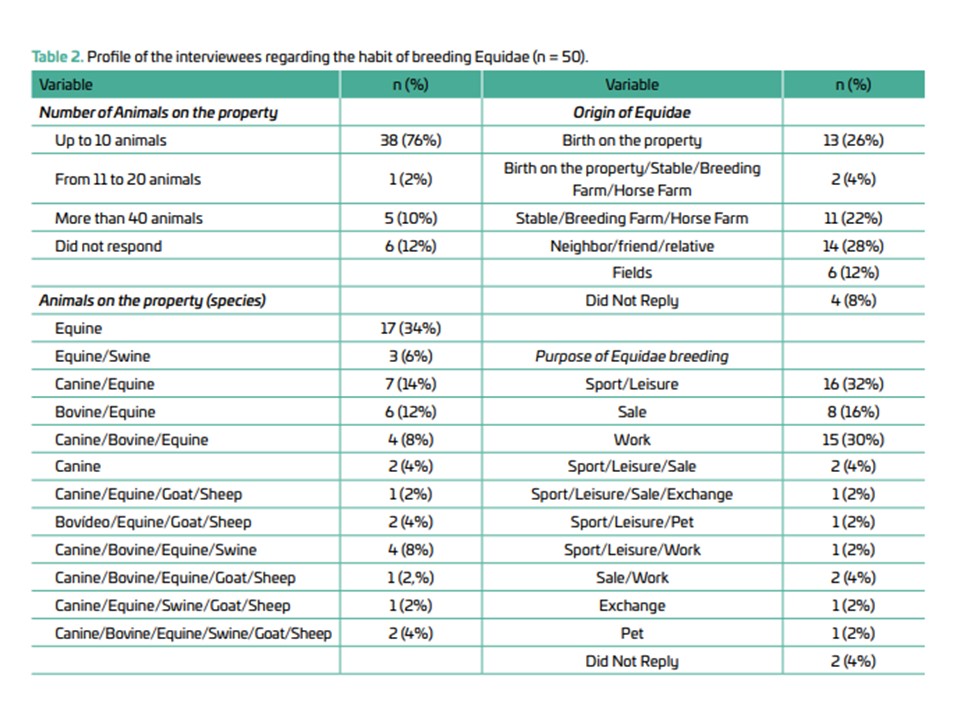Situational profile of equidae breeders in the municipality of Soure, Pará: an approach to glanders and adoption of relevant sanitary measures
DOI:
https://doi.org/10.21708/avb.2022.16.3.10654Abstract
A survey was conducted on the knowledge, attitudes, and behaviors of Equidae breeders in the municipality of Soure, Marajó Island, Pará, regarding animal health problems in the properties, especially glanders and adoption of sanitary measures that are pertinent to their combat, to elaborate on educational technical material with the appropriate methodology. The study included 50 interviewees from urban and rural areas of this municipality. Regarding data collection, structured interviews containing 22 multiple choice questions on the socioeconomic characteristics of breeders and/or owners of Equidae, breeding habits and models, and conceptions about sanitary control and their relationship with the animal health defense agency were conducted. From the qualitative analysis of data, 66% (33/50) interviewees were identified as literate, which facilitates the choice of the best language to use for communication. Regarding the choice of the best language for the transfer of information, 62% (31/50) interviewees said that a mobile phone is currently the best tool for transmitting information. Further, 40% (20/50) interviewees breed their Equidae extensively, raising an alert for epidemiological surveillance, and only 10% (5/50) interviewees turned to ADEPARÁ when the animals were sick. Based on the study results, Equidae breeders need guidance regarding the actions of the animal health defense services, and sanitary education is a fundamental measure for raising awareness and clarification of glanders to mitigate damage to public health and animal welfare, avoiding its spread in the State.
Downloads

Downloads
Published
Issue
Section
License
Copyright (c) 2022 Acta Veterinaria Brasilica

This work is licensed under a Creative Commons Attribution 4.0 International License.
Autores que publicam na Acta Veterinaria Brasilica concordam com os seguintes termos: a) Autores mantém os direitos autorais e concedem à revista o direito de primeira publicação, com o trabalho simultaneamente licenciado sob a Licença Creative Commons Attribution que permite o compartilhamento do trabalho com reconhecimento da autoria e publicação inicial nesta revista. b) Autores têm autorização para assumir contratos adicionais separadamente, para distribuição não-exclusiva da versão do trabalho publicada nesta revista (ex.: publicar em repositório institucional ou como capítulo de livro), com reconhecimento de autoria e publicação inicial nesta revista. c) Autores têm permissão e são estimulados a publicar e distribuir seu trabalho online (ex.: em repositórios institucionais ou na sua página pessoal) a qualquer ponto antes ou durante o processo editorial, já que isso pode gerar alterações produtivas, bem como aumentar o impacto e a citação do trabalho publicado (Veja O Efeito do Acesso Livre).


 Esta obra está licenciada com uma Licença
Esta obra está licenciada com uma Licença 